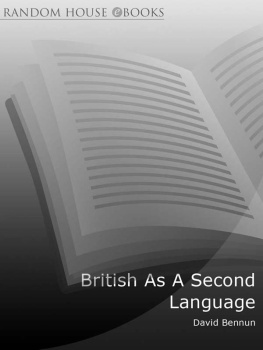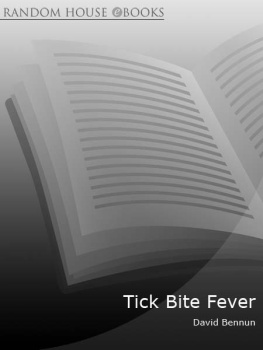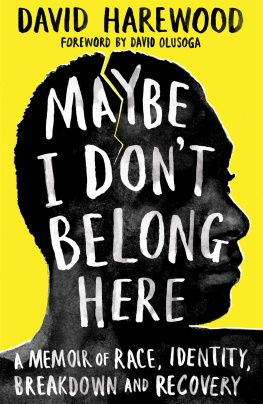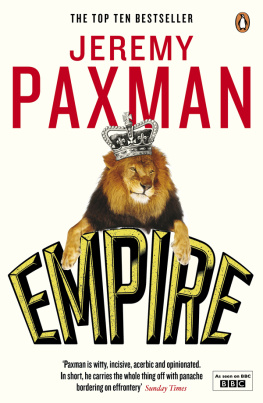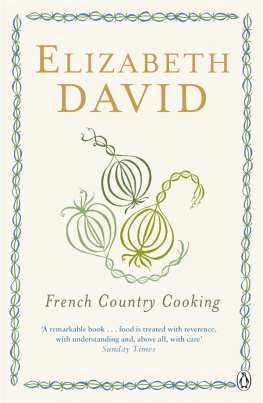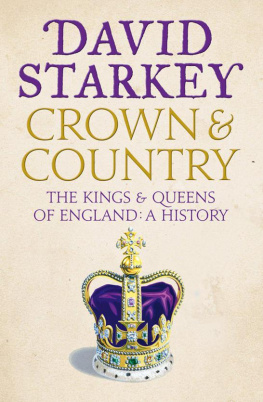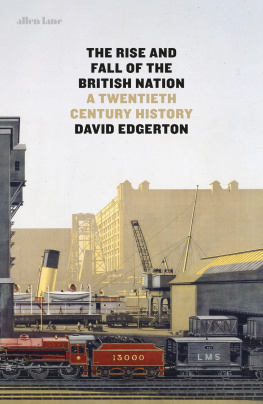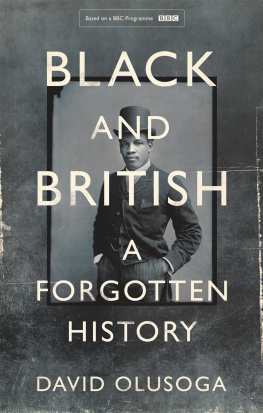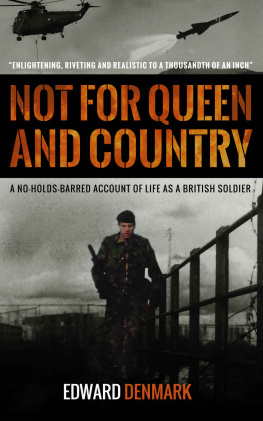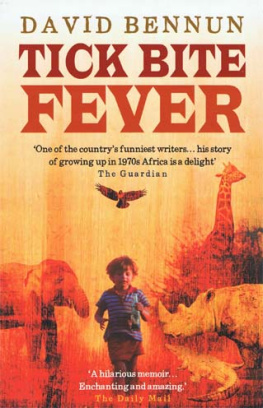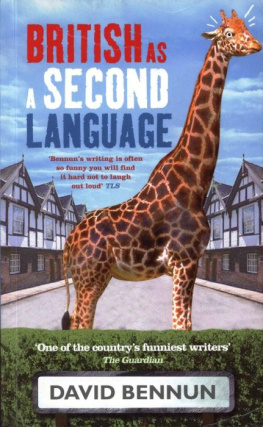Praise for Tick Bite Fever also by David Bennun
Hilarious. | BBC Radio 4, Midweek |
Matchlessly witty... one of the countrys funniest writers.
Steven Poole, The Guardian
A hilarious memoir... Enchanting and amazing.
The Daily Mail
Simply hilarious. Laugh-out-loud is an understatement... A wonderful insight into life in Africa from a two-foot high point of view, Tick Bite Fever is a witty, touching and above all affectionate look at his unique upbringing.
The Press Association
Exotic hats off to David Bennun, who has written a book full of warmth and self-deprecating humour... The authors childhood is painted in a wonderfully blurry way... The book continues to amaze with its advice on how to run from various animals, or its account of the attempted coup of 1982.
Word magazine
A relentlessly bubbling stream of self-deprecating yarns and misadventures... Tick Bite Fever itches with mordant wit theres at least one turn of phrase per paragraph that gets among your ribs like a feather duster. An excellent memoir.
Uncut magazine
Tick Bite Fever is a contemporary version, set in Africa, of Gerald Durrells My Family and Other Animals ... Bennuns writing is often so funny you will find it hard not to laugh out loud.
TLS
BRITISH
AS A SECOND LANGUAGE
DAVID BENNUN

This eBook is copyright material and must not be copied, reproduced, transferred, distributed, leased, licensed or publicly performed or used in any way except as specifically permitted in writing by the publishers, as allowed under the terms and conditions under which it was purchased or as strictly permitted by applicable copyright law. Any unauthorised distribution or use of this text may be a direct infringement of the authors and publishers rights and those responsible may be liable in law accordingly.
Version 1.0
Epub ISBN 9781409004677
www.randomhouse.co.uk
This edition published in 2006
First published in Great Britain in 2005
10 9 8 7 6 5
Text David Bennun 2005
David Bennun has asserted his right to be identified as the author of this work under the Copyright, Designs and Patents Act 1988.
All rights reserved. No part of this publication may be reproduced, stored in a retrieval system, or transmitted in any form or by any means, electronic, mechanical, photocopying, recording or otherwise without the prior permission of the copyright owners.
First published by
Ebury Press
Random House, 20 Vauxhall Bridge Road, London, SW1V 2SA
Random House Australia (Pty) Limited
20 Alfred Street, Milsons Point, Sydney,
New South Wales 2061, Australia
Random House New Zealand Limited
18 Poland Road, Glenfield, Auckland 10, New Zealand
Random House (Pty) Limited
Isle of Houghton, Corner of Boundary Road & Carse OGowrie,
Houghton 2198, South Africa
Random House Publishers India Private Limited
301 World Trade Tower, Hotel Intercontinental Grand Complex,
Barakhamba Lane, New Delhi 110 001, India
The Random House Group Limited Reg. No. 954009
www.randomhouse.co.uk
A CIP catalogue record for this book is available from the British Library.
Cover Design by Two Associates/Tony Lyons
First We Take Manhattan Words and Music by Leonard Cohen, Stranger Music Inc. Sony/ATV Music Publishing Limited
Bengali in Platforms Words and Music by Stephen Street and Steven Morrissey 1988, Reproduced by permission of EMI Virgin Music Ltd, London WC2H 0QY
Evidently Chicken Town Words by John Cooper Clarke and Music by Martin Hannett and Stephen Hopkins 1980, Reproduced by permission of EMI Songs Ltd/Dinsong Ltd, London WC2H 0QY
Text design and typesetting by textype
ISBN 9780091900359
Papers used by Ebury Press are natural, recyclable products made from wood grown in sustainable forests.
Printed and bound in Great Britain by Cox and Wyman Ltd, Reading, Berkshire
Copies are available at special rates for bulk order. Contact the sales development team on 020 7840 8487 or visit www.booksforpromotions.co.uk for more information.
CONTENTS
ACKNOWLEDGEMENTS
M ORE PEOPLE DESERVE THANKS from me than space will allow or this book can justify. I trust that they know who they are, and how much I appreciate their help and support. It would be remiss not to single out Jon Wilde, Ben Marshall and Andrew Mueller, mainly for their encouragement, but also to deflect blame from myself. Im particularly grateful to Karina Mantavia; the chapter on food could not have been written without our many conversations on the subject.
I should point out that with the exception of public figures (politicians, celebrities and the like) and my own family, all names in British as a Second Language have been changed. Folk who see their names appear can rest assured that the characters described arent them. I must also admit to having fused a few characters into composites, although all events are drawn from life.
Finally, let me offer thanks in advance to anyone British who reads this book and doesnt subsequently march up my front path at the head of a lynch mob. Say what you like about Britain I certainly have but there arent many countries where you could get away with this sort of thing. Furthermore, thanks in advance to anyone, British or otherwise, who reads this book, full stop. After all, nobody was ever forced to buy a book at gunpoint. Despite my efforts to persuade my publisher that the idea has its merits.
PROLOGUE
A T THE CONCLUSION OF the Second World War, the British Empire covered nearly a quarter of the globe. Within four decades it had shrivelled like a salted slug. By the mid-1980s it comprised the mainland, an adjacent and disproportionately pugnacious (even for Ireland) corner of Ireland, and a cluster of oceanic fly-specks, which served either as staging posts for narcotics traffickers or trysting grounds for several of the worlds hardier seabird species.
I choose this timescale because four decades forty-one years and the odd month, if you wish to quibble elapsed between the two events in British history that hold the greatest personal significance for me. The first, the end of the war, is fairly well known; the second, my taking up residency in the country, inexplicably less so. This book may in some small way alter that imbalance. But I dont see how. Unless, by chance, a copy should fall into the hands of a decrepit Japanese jungle warrior in a Guam cave, and alert him to Hirohitos surrender.
In October 1986 I left my home in Nairobi, Kenya where I had lived for thirteen years, following a two-year stay in Zambia and flew to Heathrow, college-bound. I was eighteen years old. I had, as the saying goes, a suitcase and a dream. A day later, I was in Brighton and down to just the dream. Lufthansa Airlines, with ruthless German inefficiency, had elected to leave the suitcase in Nairobi. A dream is a fine thing to have, but there are times when you would settle for a change of underwear.
The passport I showed at the Heathrow immigration desk confirmed that I was British, and made a much better job of it than I ever have. Ive spent a further eighteen years doing my damnedest to pass for British and only now, when I have all but given up trying, do I seem to be making the slightest headway. It says something about Britain that an Anglophone individual raised in former British colonies and educated in a British curriculum by schools organised on the British model should be wholly baffled by this island. Either that, or it says something even more worrying about the aforementioned individual.

